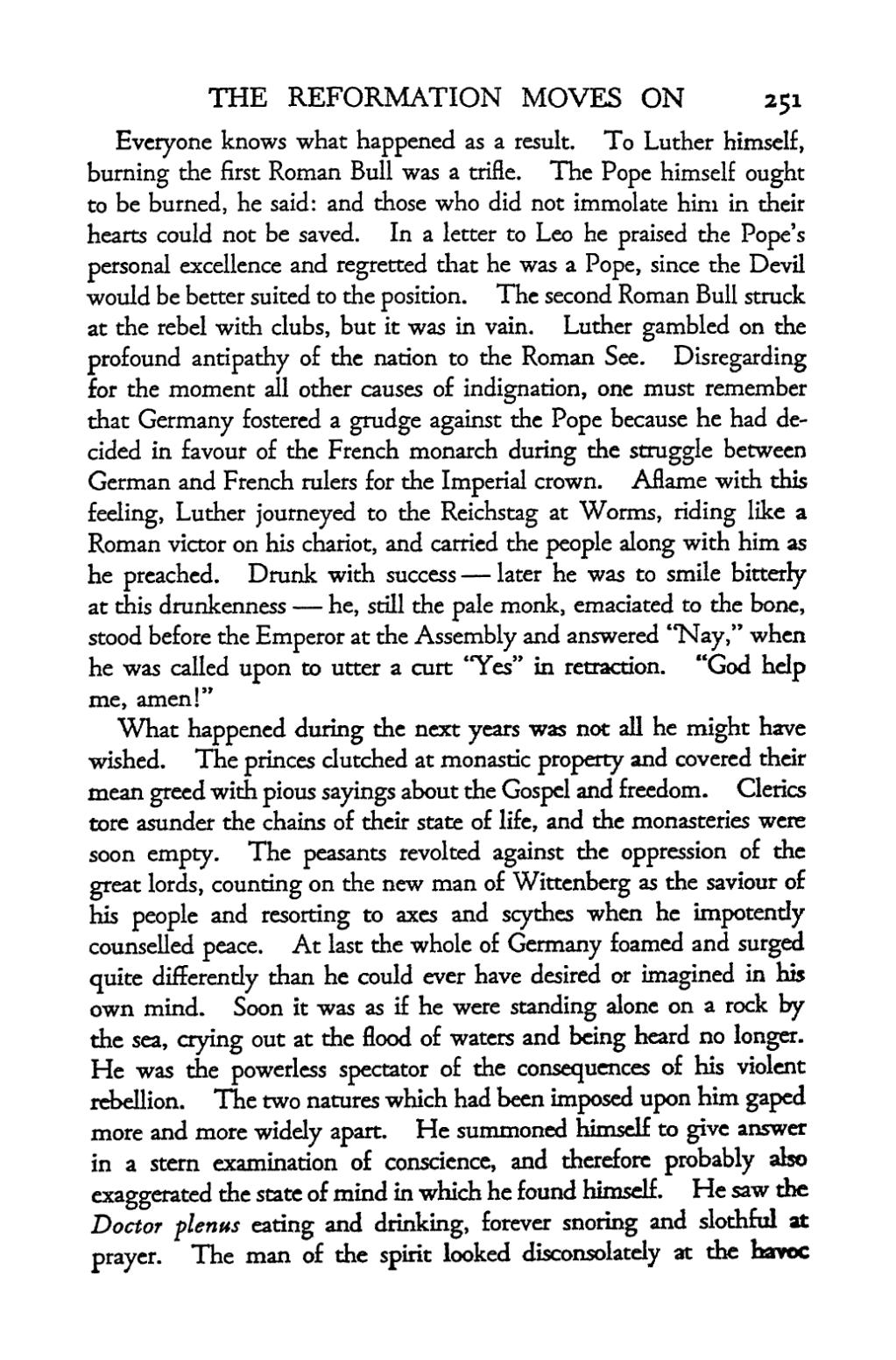REFORMATION MOVES ON 251
Everyone knows what happened as a result. To Luther himself, burning the first Roman Bull was a trifle. The Pope himself ought to be burned, he said: and those who did not immolate him in their hearts could not be saved. In a letter to Leo he praised the Pope's personal excellence and regretted that he was a Pope, since the Devil would be better suited to the position. The second Roman Bull struck at the rebel with clubs, but it was in vain. Luther gambled on the profound antipathy of the nation to the Roman See. Disregarding for the moment all other causes of indignation, one must remember that Germany fostered a grudge against the Pope because he had de- cided in favour of the French monarch during the struggle between German and French rulers for the Imperial crown. Aflame with this feeling, Luther journeyed to the Reichstag at Worms, riding like a Roman victor on his chariot, and carried the people along with him as he preached. Drunk with success later he was to smile bitterly at this drunkenness he, still the pale monk, emaciated to the bone, stood before the Emperor at the Assembly and answered "Nay," when he was called upon to utter a curt *Tes" in retraction. "God help me, amen!"
What happened during the next years was not all he might have wished. The princes clutched at monastic property and covered their mean greed with pious sayings about the Gospel and freedom. Clerics tore asunder the chains of their state of life, and the monasteries were soon empty. The peasants revolted against the oppression of the great lords, counting on the new man of Wittenberg as the saviour of his people and resorting to axes and scythes when he impotendy counselled peace. At last the whole of Germany foamed and surged quite differently than he could ever have desired or imagined in his own mind. Soon it was as if he were standing alone on a rock by the sea, crying out at the flood of waters and being heard no longer. He was the powerless spectator of the consequences of his violent rebellion. The two natures which had been imposed upon him gaped more and more widely apart. He summoned himself to give answer in a stern examination of conscience, and therefore probably ako exaggerated the state of mind in which he found himself. He saw the Doctor plenus eating and drinking, forever snoring and slothful at prayer. The man of the spirit looked disconsolately at the havoc
252
